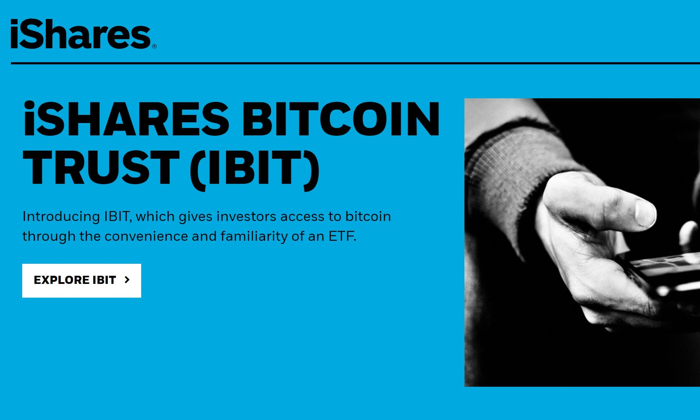As global tensions rise and geopolitical uncertainties loom, Bitcoin has emerged as a reliable hedge against geopolitical risks. This remarkable cryptocurrency demonstrates a unique capacity to decouple from traditional tech stocks, offering a robust alternative for investors seeking stability amidst turmoil. Recent analysis by Standard Chartered reveals that Bitcoin’s performance often surpasses that of major tech players, highlighting its potential as an effective economic hedge. By acting as a safe haven during times of structural stress, Bitcoin not only retains value but also fortifies investors against adverse geopolitical developments. As more individuals recognize Bitcoin’s multifaceted role, its reputation as a crucial buffer against instability in the global economy continues to strengthen.
In recent financial dialogues, alternative terms have surfaced as investors seek protection from potential economic upheavals. The narrative surrounding Bitcoin as a safeguard against political uncertainties reflects a growing trend among savvy traders who view it as a reliable asset. With rising concerns over U.S. economic influence and increased de-dollarization, Bitcoin’s role as an economic shield has never been more pertinent. Recent assessments, such as those from Standard Chartered, underscore Bitcoin’s dual functionality, being both an attractive growth opportunity and a strategic defense mechanism against market volatility. This shift indicates a broader understanding of how digital assets can better serve as tools for risk management in an increasingly unpredictable world.
The Role of Bitcoin as a Hedge Against Geopolitical Risks
In recent times, Bitcoin has emerged as a viable hedge against geopolitical uncertainties, distinct from its traditional role as merely a speculative investment. Geoffrey Kendrick from Standard Chartered has pointed out that Bitcoin’s performance against other tech stocks during market downturns demonstrates its unique value proposition. Instead of moving in tandem with the stock market, Bitcoin has often acted independently, providing a buffer for investors looking to mitigate risks associated with geopolitical tensions and economic instabilities.
As nations grapple with rising economic isolationism and the threat of de-dollarization, Bitcoin serves as a strategic asset for investors seeking financial security. It provides an alternative hedge that offers liquidity and resilience, particularly during crises that threaten traditional banking and investment structures. This paradigm shift supports the notion that Bitcoin is not just a digital currency but an essential tool for preserving wealth in a rapidly changing global landscape.
Bitcoin’s Performance Compared to Tech Stocks
Bitcoin’s decoupling from major tech stocks like Nvidia and Google has garnered attention as it reflects a significant shift in market dynamics. On April 3 and 4, while tech giants struggled with significant losses, Bitcoin maintained a relatively robust position with only minor declines. This not only underscores Bitcoin’s potential as a hedge during market volatility but also emphasizes its growing acceptance as a legitimate asset class among investors who follow asset performance.
The notable outperformance of Bitcoin in this context suggests that it may represent a safer harbor in tumultuous economic waters. Standard Chartered’s analysis illustrates how Bitcoin has started to be perceived not merely as a speculative asset tied to tech stocks but rather as an economic hedge worthy of consideration within diversified portfolios. Such a perspective could shift investment strategies as seasoned investors seek to balance growth potential with risk mitigation.
Understanding Bitcoin’s Dual Purpose as an Economic Hedge
Bitcoin’s evolution into a dual-purpose asset is noteworthy; it operates simultaneously as a growth trade and a protective economic hedge. This dual functionality positions Bitcoin as an attractive option for investors looking to enhance their portfolios amidst risk-laden environments. While conventional stocks are adversely affected by macroeconomic factors, Bitcoin’s resilience during significant downturns highlights its potential to act as a stabilizing force.
The narrative surrounding Bitcoin as an economic hedge is gaining momentum, especially in the face of traditional market failures. For instance, during the collapse of the Silicon Valley Bank, Bitcoin provided an alternate avenue for investors facing dire circumstances, showcasing its capability as a safeguard against financial turmoil. As analysts like Kendrick suggest, such characteristics might solidify Bitcoin’s role in investment strategies moving forward, emphasizing the need to consider its protective qualities in addition to its growth potential.
The Future of Bitcoin amid Geopolitical Challenges
Looking ahead, Bitcoin appears poised to further solidify its standing amidst increasing geopolitical challenges. Market analysts, including those from Standard Chartered, predict that as tensions rise globally and economic isolationism becomes more prevalent, Bitcoin will increasingly be viewed as a stable asset. Its potential breakout above the critical $85,000 mark, as suggested in recent analyses, might set the stage for Bitcoin to redefine its position not just in the crypto market, but within the broader financial ecosystem.
As Bitcoin’s relevance grows in relation to geopolitical risks, investors may begin to prioritize it more prominently within their portfolios. This shift could usher in a new era where Bitcoin is regarded not only as a digital currency but as a strategic asset essential for navigating the complexities of modern finance. The evolving narrative surrounding Bitcoin implies a reassessment of its place in investment strategies, particularly for those focused on long-term resilience against market volatility.
Analyzing Standard Chartered’s Bitcoin Perspectives
Standard Chartered’s insights into Bitcoin’s trading and performance reflect a broader understanding of its market position. The research conducted emphasizes that Bitcoin’s resilience compared to tech stocks, particularly during turbulent periods, marks a critical point for potential investors. As Kendrick noted, the notion that Bitcoin could act as a hedge against geopolitical isolation offers a compelling argument for its inclusion in diversified investment strategies.
Furthermore, Kendrick’s observations underscore the increasing sophistication among investors as they navigate the complex interplay of various assets. By analyzing Bitcoin alongside tech stocks, Standard Chartered encourages a holistic view of investment risks and returns, paving the way for future discussions on how Bitcoin can serve differently against both growth-oriented and defensive financial strategies.
Bitcoin as a Strategic Asset in Times of Economic Uncertainty
Economic uncertainty has catalyzed a shift in the way investors perceive Bitcoin. Traditionally viewed as a speculative investment, its ability to perform as a strategic asset during crisis situations—like the recent turmoil in the tech sector—has led seasoned investors to re-evaluate its role in their portfolios. Bitcoin’s intrinsic qualities, such as its decentralized nature and limited supply, position it uniquely as a hedge against inflation and economic instability.
Moreover, as investors grapple with potential shocks in traditional finance, the move towards adopting Bitcoin as a key asset becomes clearer. It stands as a beacon of resilience amidst the chaos, prompting many to consider its merits as a significant part of a modern investment thesis. Investors seeking to hedge against multifaceted risks may increasingly turn to Bitcoin, leveraging its strengths to navigate evolving economic landscapes.
The Relationship Between Bitcoin and Financial Markets
The interaction between Bitcoin and traditional financial markets highlights an interesting evolution in investment behaviors. As research suggests, Bitcoin has shown tendencies to respond like other tech stocks, yet its capacity to act as a hedge against geopolitical risks differentiates it significantly from its peers. In scenarios where traditional stocks face drastic declines, Bitcoin’s relative strength might instill confidence among investors as they seek alternative strategies.
The growing perception of Bitcoin as a defensive asset against market fluctuations suggests a budding trend in its adoption. This relationship requires ongoing analysis and understanding, as investors reassess risk factors associated with both tech stocks and cryptocurrencies. The increasing integration of Bitcoin within the financial sphere implies an imminent shift in asset allocation strategies moving forward.
Bitcoin’s Technical Analysis and Price Projections
Technical analysis of Bitcoin’s price movements has become increasingly vital for traders and investors alike. Recent reports hint at potential breakout levels following significant economic announcements, reinforcing the idea that market events can drastically shape Bitcoin’s trajectory. Analysts like Kendrick anticipate that positive labor market data could serve as a catalyst, pushing Bitcoin prices above established thresholds and reinforcing its dual role as both a growth asset and hedge against risks.
Such projections not only signify the importance of monitoring price dynamics but also highlight the intertwined nature of Bitcoin’s value with broader economic factors. As Bitcoin continues to carve out its path in the cryptocurrency domain, understanding market indicators becomes critical for investors looking to capitalize on fluctuations while hedging against potential downturns in other assets.
The Shift Towards Bitcoin in Investment Strategy
The discussion around Bitcoin’s role in investment strategies is rapidly transforming as more investors recognize its potential beyond a mere speculative asset. The recent analysis underscores Bitcoin’s ability to transcend traditional market behavior, positioning it as both a growth trade and a hedge against economic uncertainty. As historical precedent shows, Bitcoin typically retains a degree of independence from tech stocks, allowing for diversification benefits in investment portfolios.
Investors’ increasing inclination towards Bitcoin suggests a broader acceptance of cryptocurrency as an essential component of financial planning. This strategic shift indicates awareness of Bitcoin’s protective features during economic hardships, enabling investors to not only seek growth but also safeguard their assets against potential geopolitical turbulence. Such shifts in strategy point to a future where Bitcoin will likely assert its presence more firmly within diverse asset allocations.
Frequently Asked Questions
How does Bitcoin serve as a hedge against geopolitical risks?
Bitcoin has emerged as a significant economic hedge against geopolitical risks, providing investors with an alternative asset during times of global uncertainty. Its ability to perform well when traditional stocks falter highlights its potential to act as a safe haven, as indicated by recent analyses from experts like Standard Chartered. Bitcoin’s role as a hedge stems from its decentralized nature and relative independence from traditional financial systems.
What is the relationship between Bitcoin performance and geopolitical events?
Recent trends suggest a growing correlation between Bitcoin performance and geopolitical events. For instance, during periods of instability and geopolitical tensions, Bitcoin has shown resilience, often outperforming tech stocks that are more directly impacted by such events. This behavior emphasizes Bitcoin’s potential to serve as a hedge and its status as a valuable asset during times of political strife.
Can Bitcoin decouple from tech stocks during geopolitical tensions?
Yes, Bitcoin has demonstrated a capacity to decouple from tech stocks amid geopolitical tensions. Analysts have observed that while major tech stocks experience declines during adverse market conditions, Bitcoin can maintain or even gain value. This has been interpreted as evidence of Bitcoin’s evolving role as a hedge against geopolitical risks, suggesting that it may offer protection when traditional markets are volatile.
What insights does Standard Chartered’s analysis provide on Bitcoin as a geopolitical hedge?
Standard Chartered’s analysis highlights Bitcoin’s dual functionality as both a growth trade and a defensive asset against geopolitical risks. The research indicates that Bitcoin has been performing strongly in times of economic stress, which positions it as a viable hedge. By categorizing Bitcoin’s utility in the context of ‘US isolation,’ the analysis underlines its emerging role as a safe haven during periods of geopolitical uncertainty.
Is Bitcoin a better hedge against geopolitical risks than traditional assets?
Many experts suggest that Bitcoin may provide a more reliable hedge against geopolitical risks compared to traditional assets like gold or stocks. Its decentralized nature and increasing institutional adoption lend it a unique position in a rapidly changing global landscape. This perspective is supported by observations that Bitcoin has outperformed tech stocks during geopolitical stress, reinforcing its status as an economic hedge.
How does Bitcoin’s interaction with tech stocks reflect its role as an economic hedge?
Bitcoin’s interaction with tech stocks illustrates its evolving role as both a high-risk asset and an economic hedge. While it typically trades in tandem with growth stocks, recent market behavior shows that during geopolitical turmoil, Bitcoin can offer defensive characteristics and protect investors from losses typically associated with tech stock volatility.
What factors contribute to Bitcoin’s effectiveness as a hedge against geopolitical risks?
Several factors contribute to Bitcoin’s effectiveness as a hedge against geopolitical risks, including its decentralized nature, limited supply, and growing acceptance among institutional investors. Additionally, Bitcoin’s performance during moments of macroeconomic stress demonstrates its potential to act as a protective asset, reinforcing its reputation as an economic hedge in volatile environments.
| Key Point | Details |
|---|---|
| Bitcoin’s Performance | Outperformed major tech stocks during a downturn, indicating resilience as both a growth trade and hedge. |
| Bitcoin as a Hedge | It serves as a hedge against traditional finance stress, evidenced during the Silicon Valley Bank collapse. |
| Emerging Use Cases | Growing concern over US economic dominance aligns with Bitcoin’s emerging role as a hedge against geopolitical isolation. |
| Current Market Data | As of Apr 4, 2025: Bitcoin ranks #1 with a market cap of $1.67 trillion; trades at over $46.36 billion in 24-hour volume. |
| Future Outlook | Technical analyses suggest Bitcoin could break significant price levels, indicating potential growth. |
Summary
Bitcoin as a hedge against geopolitical risks is becoming increasingly recognized, especially in light of its recent performance compared to traditional tech stocks. This emerging trend highlights Bitcoin’s unique capability to function not only as a growth asset but also as a defensive mechanism during times of economic uncertainty and geopolitical tensions. Investors are now looking at Bitcoin as a viable alternative to traditional investments, supporting its dual role amid changing global dynamics. Continued interest and analysis suggest that Bitcoin’s relevance will only grow, making it a strategic asset for those navigating today’s complicated financial landscape.
As global tensions continue to rise, many investors are increasingly turning to Bitcoin as a hedge against geopolitical risks. Recent analyses, including insights from Standard Chartered, highlight Bitcoin’s unique position as it consistently outperforms traditional tech stocks amidst market volatility. This trend has led financial experts to view Bitcoin not just as a speculative investment but as a vital economic hedge amid uncertainties that threaten traditional financial systems. With Bitcoin’s performance maintaining stability while tech giants falter, it’s clear that this cryptocurrency serves a dual purpose in today’s complex landscape. Investors are starting to see Bitcoin’s potential as a durability asset, helping them navigate unpredictable geopolitical events.
In the face of rising global uncertainties, there is a noticeable shift in how digital currencies are perceived, especially Bitcoin, which is often regarded as a safeguard against socio-political instability. Analysts emphasize Bitcoin’s role as a defense mechanism for investors, especially when traditional markets are under strain from events like geopolitical discord or economic downturns. Its resilience amid falling tech stock prices underscores Bitcoin’s potential as not only an investment vehicle but also a strategic asset in managing risks associated with global turmoil. As the world grapples with increasing tensions, the notion of Bitcoin as a reliable financial bulwark resonates more than ever. Ultimately, this digital currency is redefining its place in investment portfolios seeking both growth and security.















